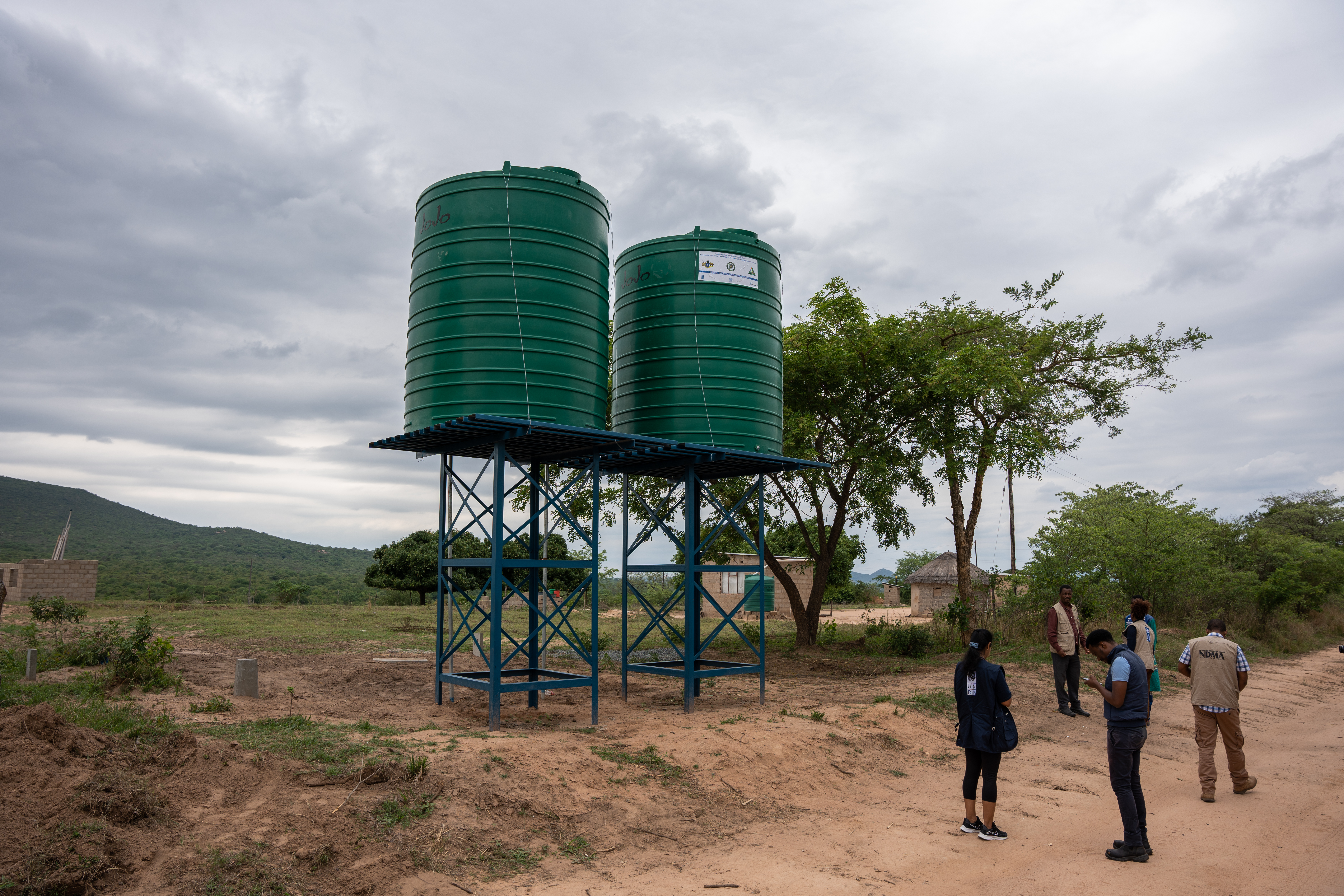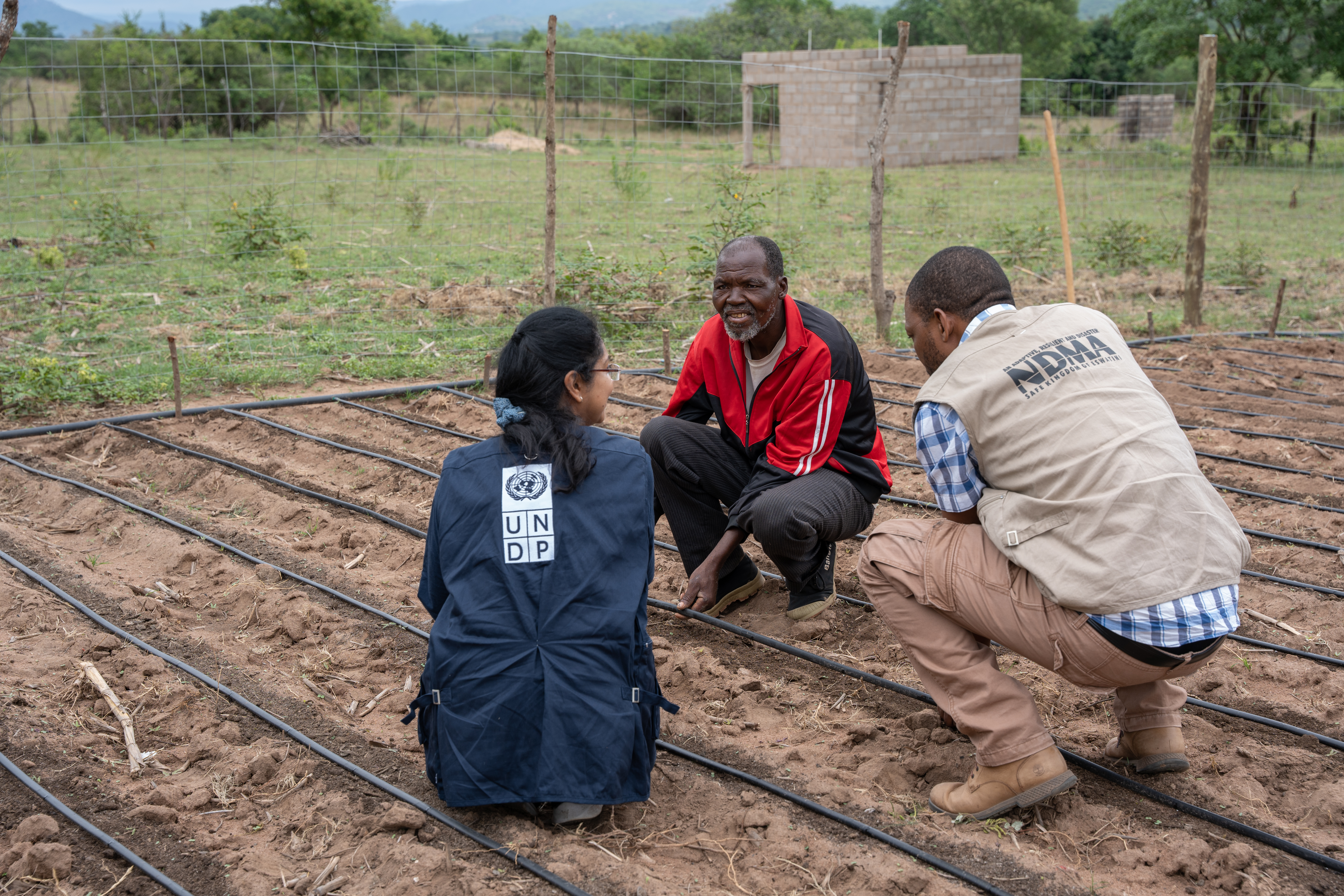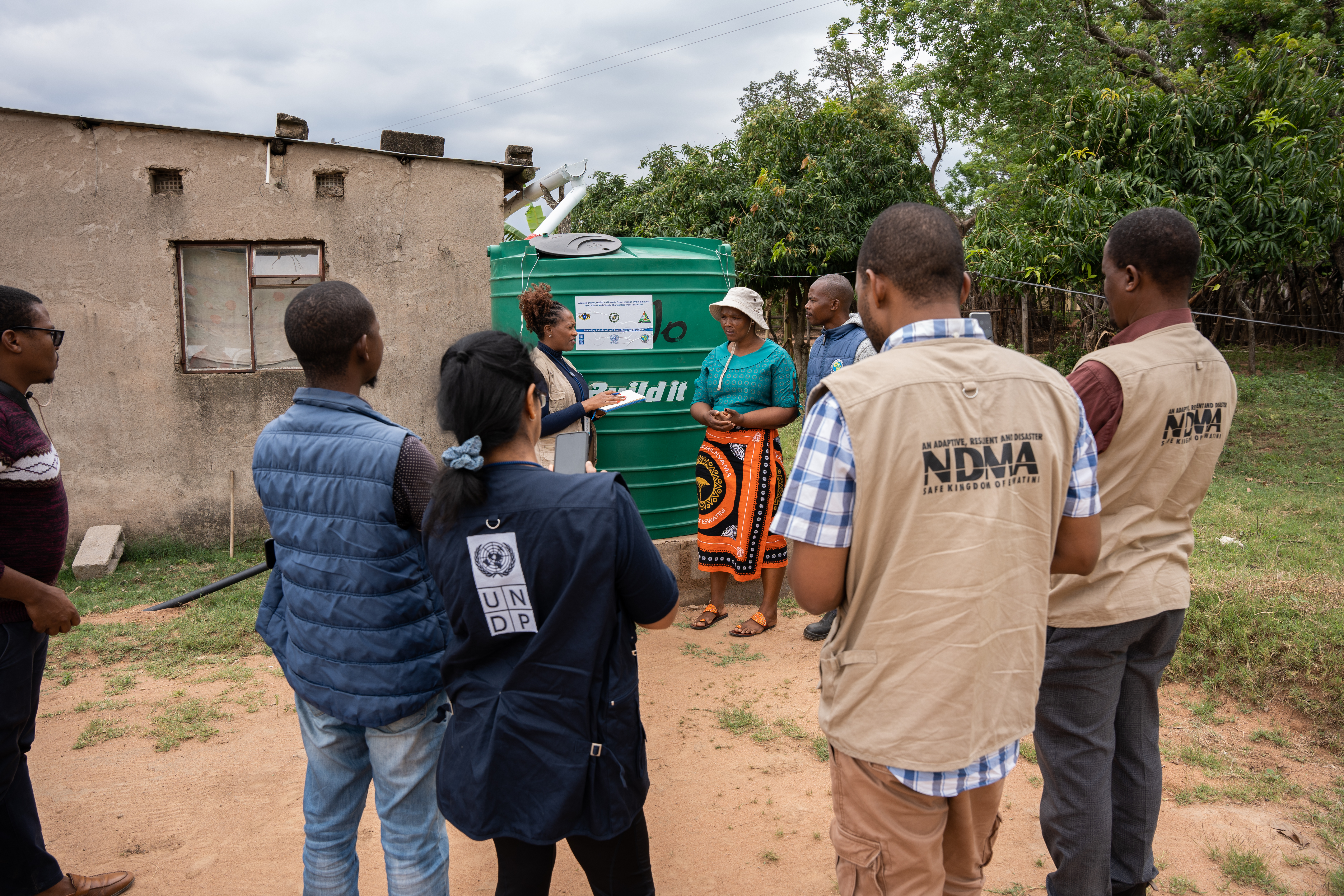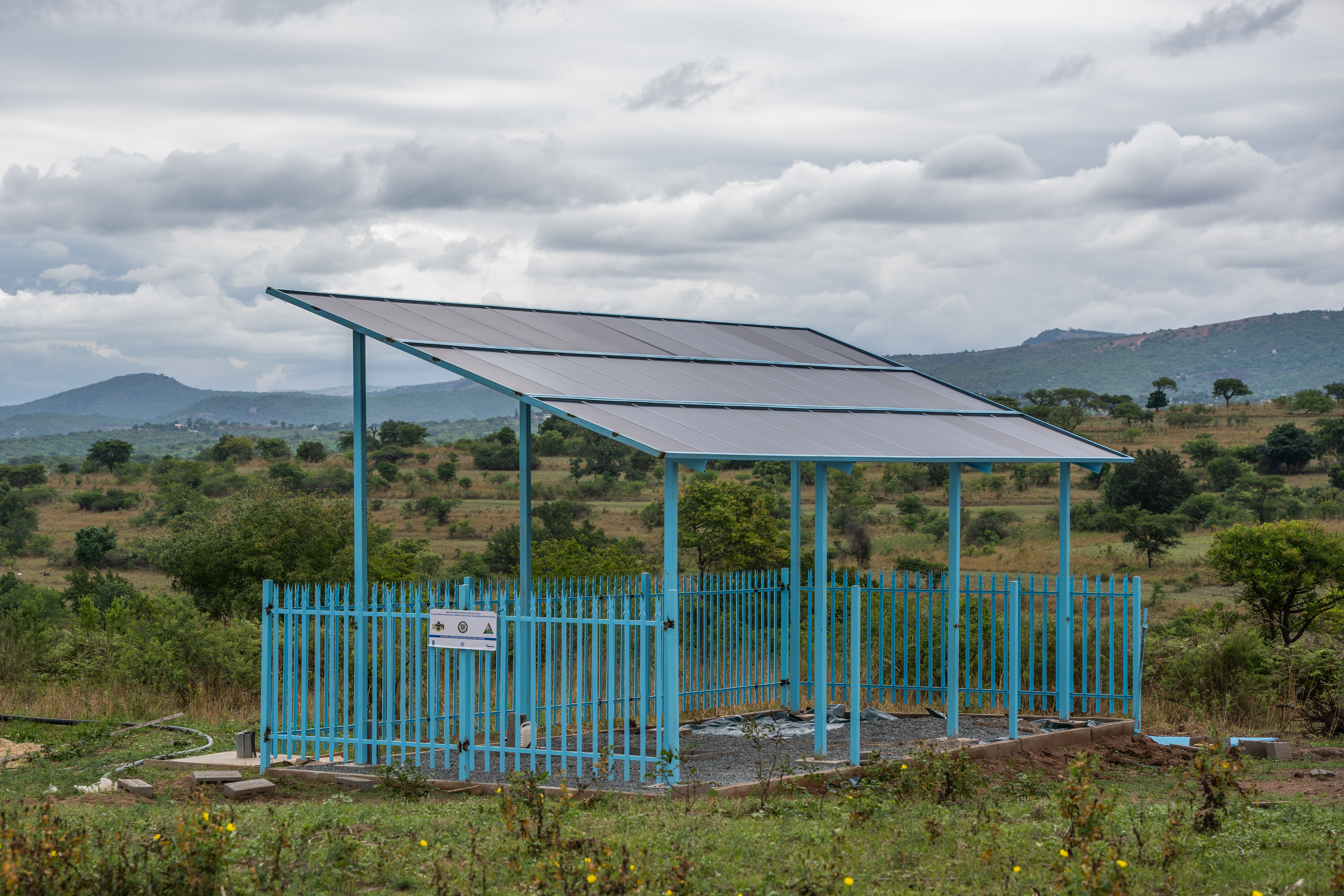Water Project Ensures Healthy and Food Secure Communities
November 3, 2022

Siphiwe Magagula fetches water from a communal tap nearby her home.
By Moses Massah, Programme Manager, Inclusive Sustainable Economic Growth
Temperatures are peaking at 34 Degrees Celsius as I travel some more than 150 kilometres outside Mbabane, the capital of Eswatini. The journey is taking me to Mkhuzweni, one of the rural water-stressed communities in the northern part of the Kingdom. People from this community, mainly women and girls, walk for more than an hour to fetch water from the rivers which are also drying up.
“The water is also contaminated and, as a result, we used to have an outbreak of waterborne diseases such as bilharzia and cholera,” says Make Siphiwe Magagula, a member of the community.
I’m accompanying the board of the India, Brazil, South Africa (IBSA)-funded project on Water Sanitation and Hygiene Project (WASH) on Disaster Risk Reduction and Climate Adaptation. The aim is to assess the progress of implementing the two-year project since January 2022. The board also intended to get the views of the community on the initiative that has supported the community with boreholes, water harvesting, and storage facilities.
“We now take a few steps to fetch clean water from communal taps closer to our homes,” says Magagula who is the chairperson of the water committee.

The project provided the community with boreholes and storage facilities to ensure that they get access to water.
The project is expected to give 600 farming households in three regions – Hhohho, Manzini and Lubombo – access to water for domestic use and irrigating backyard gardens. The farming households of 3000 people have also been trained on efficient irrigation methods, composting, permaculture, and making organic liquid fertilizer from manure and herbicide solution.
In the meantime, about 50 lead farmers have been trained in rainwater harvesting and drip irrigation after which they established demonstration plots, which are now used to share expertise with about 400 secondary farmers on backyard vegetable production. About half of the secondary farmers have in turn established their permaculture backyard gardens. This will significantly improve food and nutrition security in the area. As part of the project, one of the implementing partners, Africa Cooperative Action Trust (ACAT), is also providing farm inputs such as seedlings and fertilizers to participating farmers.

Moliya Dlamini, who was supported with a drip irrigation system, narrates how as a lead farmer he is going to support other farmers to adopt conservation methods.
This project is implemented by the National Disaster Management Agency (NDMA), WaterAid, ACAT, Matsapha and Mbabane municipalities. UNDP is the executing entity on behalf of IBSA which is hosted by the UN Office for South-South Cooperation (UNOSSC) and provides oversight of the project. The total funding received from IBSA is $999,350 for two years between January 2022 and December 2023.

Thembi Shabangu, a community leader, says the community is grateful for the water harvesting facilities to support backyard gardens.
In October 2022, NDMA and its partners received an additional $45,000 to expand this project through UNDP’s Joint SDG Fund. This will provide solar power to pump water at two more boreholes, drip irrigation kits and equipment to 20 additional farmers. The additional funds will also support two households with solar power. The houses were rebuilt by NDMA after being destroyed by Tropical Cyclone Eloise last year.
The board noted the significant progress made on the construction of two of the three solar-powered borehole pump water supply systems intended to supply up to 100 households with clean water within this community.
Addressing the board, a member of the Chief Inner Council of the Emkhumzweni Chiefdom, Mr. Elphas Dlamini, said “We are happy about the work of NDMA and UNDP through WaterAid because it will help us get clean water for drinking and will stop us from drawing water from the rivers”.

The boreholes are powered by solar systems to ensure sustainable and affordable energy.
As part of project activities, it pleased the board to interact with a team of women who have been trained by the Home Economics Department of the Ministry of Agriculture in soap making. About 50 women are trained in soapmaking and received startup kits to start small businesses under this project. At the time of the visit, they had already started supplying liquid dishwashing soap to the public transport operators and car wash businesses in the area and the nearby town of Piggs Peak where it is used in public toilets. The women need support to brand and upscale their products.
“Women in this area depend on selling things like scones, doughnuts and vegetables at the market,” says Busisiwe Dlamini, one of the soap producers, adding: “The soap will give us an additional income and we appreciate the support.”
Under its Inclusive Sustainable Economic Growth Portfolio, UNDP will continue to strengthen institutions and communities to be more effective, accountable, transparent, inclusive, and gender-responsive in the delivery of essential services, especially for the vulnerable and disadvantaged.

 Locations
Locations